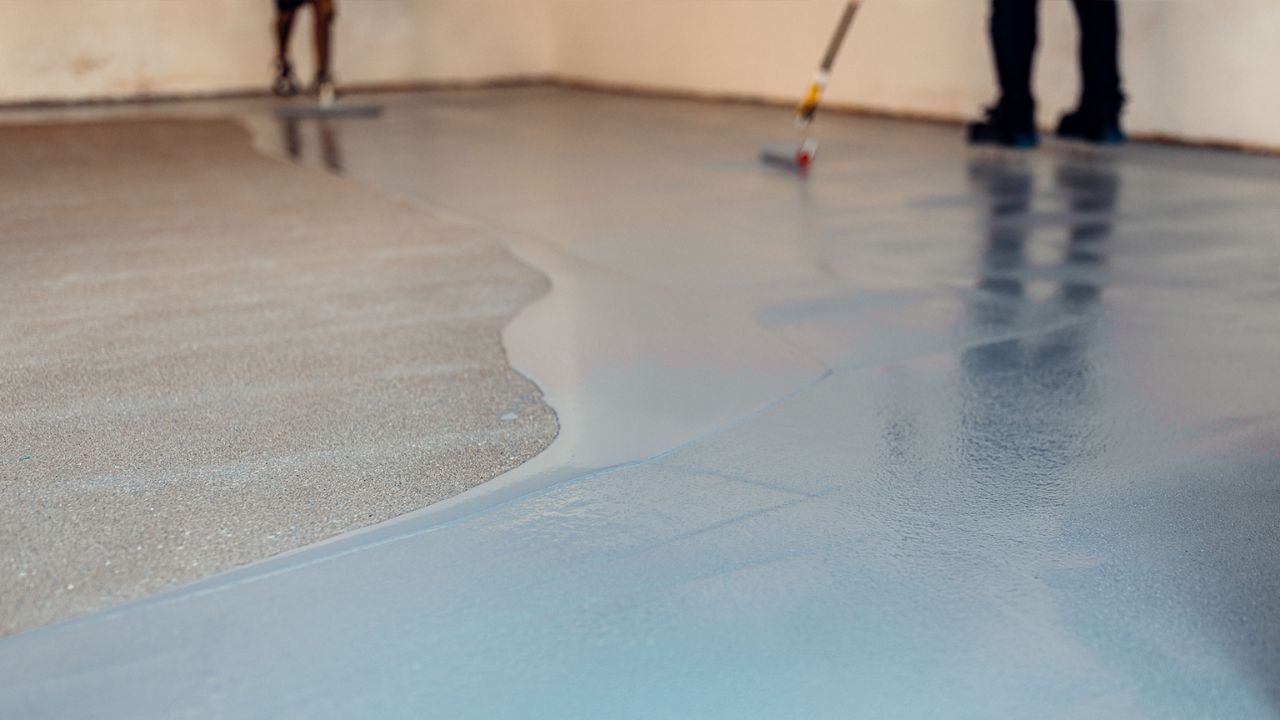Anhydrite flooring is a self-levelling screed based on calcium sulphate (anhydrite), used as a subfloor in residential and commercial construction. It has very good thermal conductivity, making it particularly suitable for use with underfloor heating systems.
Compared to traditional cement floors, anhydrite flooring is lighter, sets faster and creates an extremely smooth surface. It therefore does not require additional sanding before laying the cladding. The advantages of anhydrite flooring also include low shrinkage during drying.
Low shrinkage reduces the risk of cracking and provides the ability to create large expansion areas without the need for multiple joints. Their limitation is their sensitivity to moisture, which is why they are not used in rooms exposed to prolonged moisture, such as laundries or saunas, and in bathrooms they require additional protection with a waterproofing layer.

